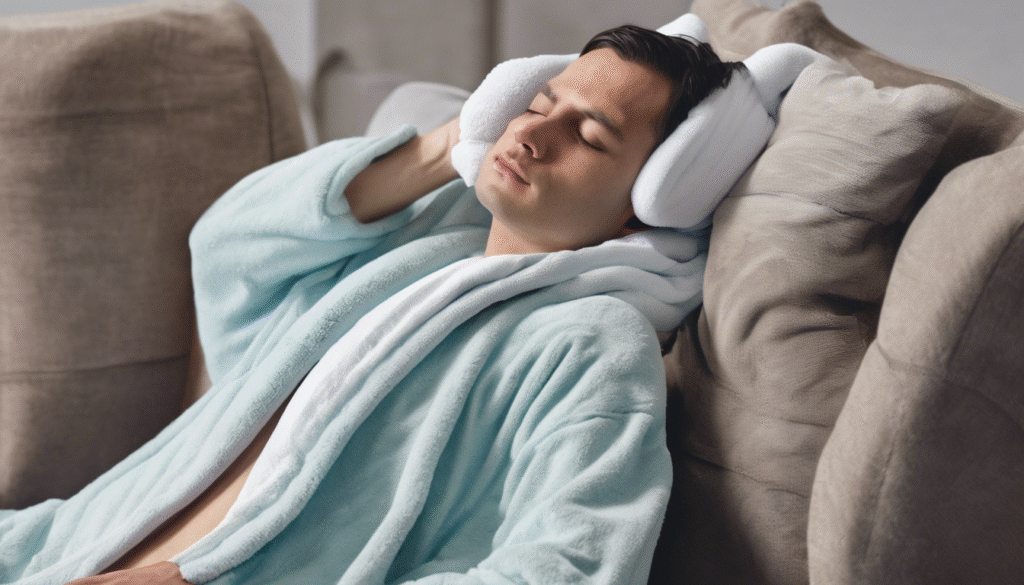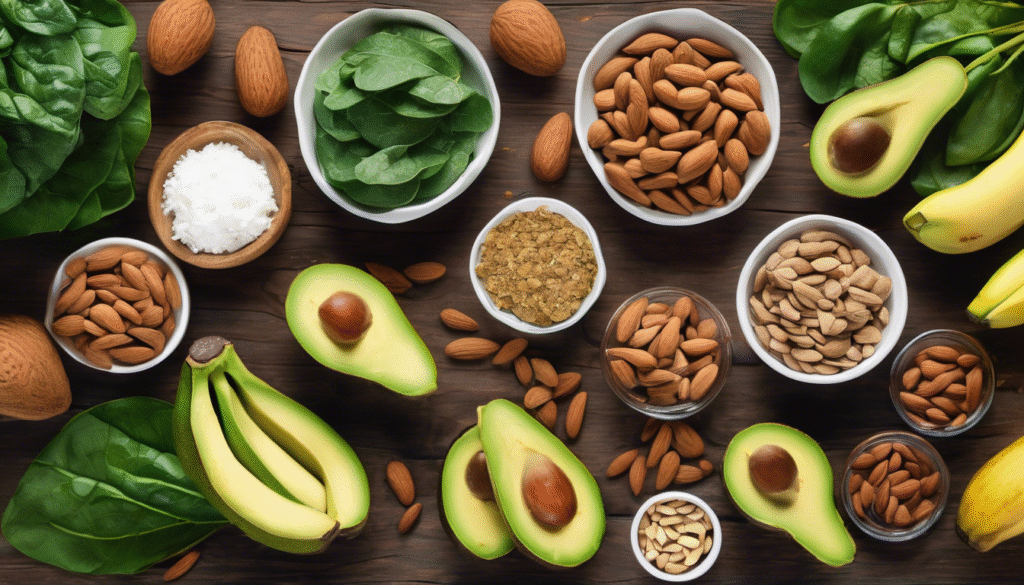Headaches are one of the most common health issues experienced globally. Research indicates that nearly everyone will experience a headache at some point in their lives, with many people suffering from them frequently.
Various factors contribute to headaches, including stress, lack of sleep, dehydration, and prolonged screen time. Unfortunately, headaches can interfere with work, disrupt sleep, and reduce overall productivity.
Many people often resort to over-the-counter painkillers for headache relief. However, frequent use of these medications can lead to side effects, including “rebound headaches.” This has prompted more individuals to seek natural alternatives.
The good news is that there are safe and effective ways to alleviate headache pain at home. In this article, we will explore 10 quick and natural remedies for headache relief that you can try today, all without the need for pills.
Natural Remedies for Headache
1. Stay Hydrated

Dehydration is a frequently overlooked cause of headaches. When the body lacks sufficient fluids, it can impair blood circulation and brain function, often resulting in throbbing pain or dizziness.
One of the simplest and most effective home remedies for headaches is to drink water at the first sign of discomfort.
If plain water feels boring, you can add a slice of lemon, cucumber, or mint leaves to make it refreshing. Eating water-rich foods like watermelon, cucumbers, and oranges also helps maintain hydration levels. To prevent dehydration headaches, aim to drink at least 8–10 glasses of water daily.
It’s essential to always carry a water bottle with you, especially during hot weather or after physical activity.
2. Cold or Warm Compress

Using temperature therapy is a well-established home remedy for headaches.
Cold Compress: A cold compress is particularly helpful for migraines. It reduces inflammation and numbs the pain. Wrap ice cubes in a thin towel and place them on your forehead for 10–15 minutes. Even a cold, damp washcloth can work wonders. [1]
Warm Compress: On the other hand, tension headaches caused by muscle stiffness respond better to warmth. To relieve tight muscles, place a warm towel or heating pad on the back of your neck and shoulders.
Necessary: You can alternate between hot and cold therapy if you’re unsure which type of headache you’re experiencing.
3. Practice Deep Breathing and Relaxation
Stress is a major trigger for headaches. When you feel anxious, your muscles can tighten, and your breathing may become shallow, which can worsen the pain. Practicing deep breathing and relaxation techniques serves as a natural and effective home remedy for headaches.
-
Find a quiet place, sit comfortably, and close your eyes.
-
Inhale slowly through your nose, hold your breath for a few seconds, and exhale deeply through your mouth.
-
Repeat this cycle for 5–10 minutes.
Yoga, meditation, and mindfulness exercises also help reduce stress hormones and promote relaxation in the body. Not only do these practices relieve headaches, but they also prevent future episodes.
4. Massage Pressure Points

A simple massage can significantly alleviate a headache. Gently massaging your temples, the base of your skull, and the area between your eyebrows can help reduce tension and improve blood circulation.
This makes massage an effective home remedy for headaches caused by stress or muscle tightness.
For added relief, you can massage the pressure point between your thumb and index finger. Applying steady pressure to this spot for a few minutes is known to naturally ease headache pain.
Necessary: Using essential oils like peppermint during the massage can enhance the soothing effect.
5. Use Essential Oils
For centuries, essential oils have been used in traditional medicine, with many proving effective in treating headaches. Particularly beneficial are peppermint and lavender oils.
Peppermint oil contains menthol, which produces a cooling effect and helps to relax muscles.[2]
Lavender Oil: Known for its calming and anti-anxiety properties.[3]
To relieve headaches with essential oils, combine a few drops of the oil with a carrier oil, such as coconut or olive oil.
Apply the mixture to your temples, forehead, or neck. Alternatively, you can add a few drops of the oil to a diffuser or inhale the aroma. This method makes essential oils a soothing home remedy for headaches with no side effects.
6. Improve Posture
In today’s digital world, many people spend hours hunched over computers and smartphones. Poor posture strains the neck and shoulder muscles, leading to tension headaches. Improving posture is an effective preventive measure and home remedy for headaches.
-
Sit with your back straight and shoulders relaxed.
-
Keep your screen at eye level to avoid bending your neck forward.
-
Take short breaks every hour to stretch and move around.
Basic exercises to enhance posture, such as rolling shoulders and gently stretching the neck, can help alleviate tension and decrease headache frequency.
7. Drink Herbal Tea

Herbal teas are a soothing and natural remedy for headaches. They not only provide hydration but also contain healing compounds that relax the body and alleviate pain.
How to stop a headache immediately at home?
- Ginger Tea: Its anti-inflammatory properties make it effective for treating migraines.
-
Peppermint Tea: This tea is cooling and refreshing, helping to relieve tension headaches.
-
Chamomile Tea: Known for promoting relaxation and improving sleep, chamomile can help reduce stress-related headaches.
-
For maximum relief, sip herbal tea slowly in a calm environment. The warmth of the tea also enhances blood circulation, contributing to comfort and easing discomfort.
8. Rest in a Dark, Quiet Room
Sometimes, the best home remedy for a headache is simply taking a rest. Bright lights, loud noises, and constant screen exposure can worsen headaches, particularly migraines. Retreating to a dark, quiet room can help reduce sensory overload and allow your body to relax.
Lie down, close your eyes, and practice slow breathing. Even a brief 20-minute nap in such an environment can leave you feeling refreshed and headache-free.
Avoid looking at your phone during this time, as the screen light can intensify the pain.
9. Try Caffeine in Moderation
Caffeine can be both helpful and harmful for headaches. In small amounts, it constricts blood vessels and improves blood flow, providing quick relief. A cup of coffee, black tea, or green tea can serve as an effective home remedy for headaches.
However, excessive caffeine consumption can lead to dependence and rebound headaches when you do not consume it. Therefore, moderation is essential.
It’s best to limit your intake to one or two cups a day and avoid consuming caffeine late in the evening, as it may disrupt your sleep.
10. Eat Magnesium-Rich Foods

Magnesium is an essential mineral crucial for nerve function and blood circulation. Low levels of magnesium are often associated with migraines
. Consuming magnesium-rich foods can serve as a natural prevention method and a long-term home remedy for headaches.
Some excellent magnesium-rich foods include:
-
Almonds
-
Spinach
-
Avocados
-
Bananas
-
Dark chocolate (in moderation)
If you suffer from frequent migraines, your doctor may recommend magnesium supplements. However, for most people, incorporating these foods into daily meals is sufficient to maintain healthy levels.
Extra Tips for Preventing Headaches
-
Establish a consistent sleep schedule.
-
Do not skip meals, as low blood sugar can lead to headaches.
-
Reduce alcohol consumption and limit processed foods.
-
Manage stress through physical activity, engaging hobbies, or time spent in nature.
- Disclaimer: This article is only for educational purposes and should not replace medical advice. Consult a healthcare professional if you experience persistent symptoms.
Conclusion
Headaches can be uncomfortable and disrupt daily life, but they don’t always require medication. Several effective home remedies can provide relief. Staying hydrated, practicing relaxation techniques, using essential oils, and improving your posture are just a few options that can make a significant difference.
These methods are simple, safe, and easy to try at home. Keep in mind that what works for one person may not work for another, so it’s a good idea to experiment with different remedies until you find what provides you with the most relief.
However, if you experience frequent or severe headaches, or if they are accompanied by symptoms such as vision problems, nausea, or dizziness, it’s essential to seek medical advice. While natural remedies can offer comfort, professional guidance is vital to addressing any underlying health conditions.
By incorporating these natural solutions into your routine, you can reduce your reliance on medication and promote a healthier, more balanced lifestyle free from persistent headache pain.
Sources: my.clevelandclinic.org, healthline.

